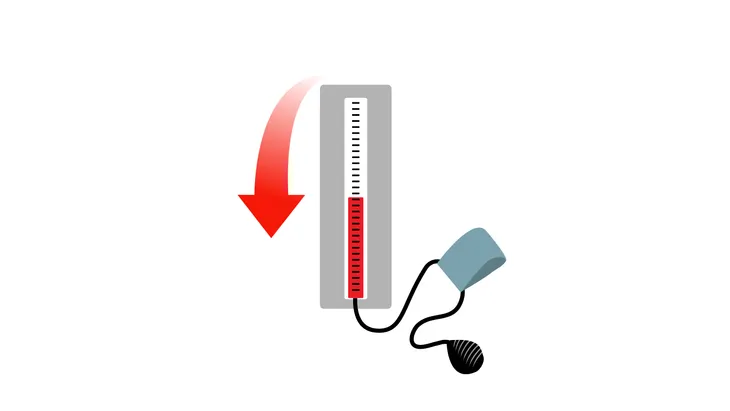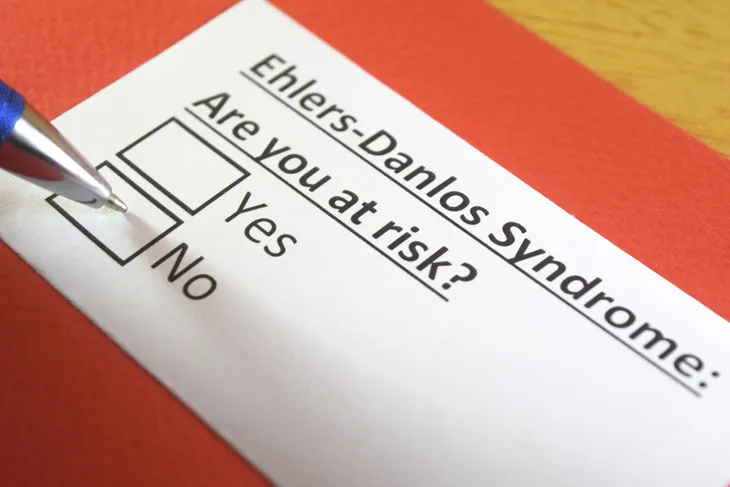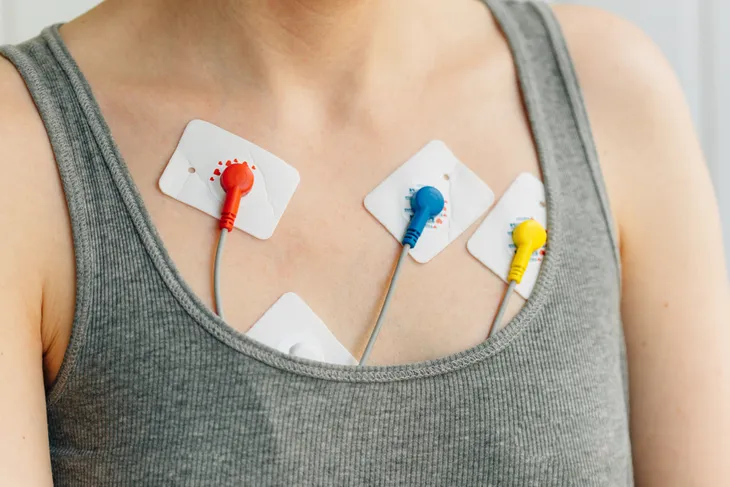Here at Activebeat, we talk a lot about the dangers of high blood pressure, or hypertension. However, we don’t often mention low blood pressure, or hypotension, with the same tone of caution. While lowering blood pressure may be a goal for those at risk of heart disease and stroke, low blood pressure can indicate an underlying health issue, such as a heart problem, thyroid condition, or a neurological disorder, and may begin with symptoms of dizziness, nausea, and scary bouts of fainting.
Let’s learn more about the symptoms, common causes, and treatments for low blood pressure…
1. When is Blood Pressure Considered Low?
Blood pressure (high or low) refers to the force of blood on the artery walls as the heart pumps blood. Blood pressure readings vary from patient to patient. For instance, low blood pressure in athletes or those who regularly exercise can be an indication of prime health.
The Mayo Clinic stipulates that hypotension (or low blood pressure) exists when blood pressure reads 90 mm Hg (which is millimeters of mercury) or less in systolic blood pressure (when the heart contracts) and 60 mm Hg or less diastolic blood pressure (when the heart relaxes). In other words, less than 90 (as the top number) and less than 60 (as the bottom number) on your blood pressure reading (typically read as “90 over 60”). However, low blood pressure is only concerning if accompanying symptoms (i.e., dizziness and/or fainting) exist.
2. Early Low Blood Pressure Symptoms
Official data from the National Institutes of Health (NIH) indicates that hypotension is typically considered “related to” another health issue. For instance, the most common indicators of low blood pressure are dizziness and lightheadedness. However, severe fatigue with no explanation, blurred vision, extreme weakness and fatigue, general confusion, and nausea (often accompanied by vomiting and diarrhea) can also occur.
Doctors characterize orthostatic hypotension (OH) as low blood pressure that occurs when going from seated or lying down to standing. OH causes the blood pressure to drop suddenly, which may cause fainting, or syncope. Neurally mediated hypotension (NMH) can cause a drop in blood pressure due to prolonged periods of standing (due to increased activity of the vagus nerve) or in response to emotional trauma. In both cases, blood pressure usually normalizes within a few minutes.
3. More Serious Signs of Hypotension
Blood pressure that’s sufficiently low will often lead to fainting, irregular heartbeat, and even seizures, according to the NIH. However, these severe signals are often accompanied by several other subtle (and often shrugged off) signs, such as chest pain and shortness of breath.
Hypotension may also cause headache and neck stiffness, a chronic cough with sputum, painful urination (or dysuria), high fever, dark colored (or tarry) stools, pain in the upper back, and even chronic indigestion, which may lead to vomiting and diarrhea. These are considered cardinal signs of an underlying health issue that is causing the blood pressure to plummet. These symptoms should always be brought immediately to a doctor’s attention.
4. Hypotension with Shock
According to the NIH, low blood pressure can often result from shock, which occurs when the major organs (including the brain) are robbed of vital blood and oxygen. Vasodilatory shock causes the blood vessels to loosen and relax drastically, causing them to widen. If the body suffers major blood loss, shock can occur, causing the pulse and breathing to speed up. The body may also become hot, and then cold and clammy.
Extreme fatigue and confusion will often set in before loss of consciousness. The shock sufferer’s skin may also lose color or turn blue. Shock should be considered an emergency situation and should be treated immediately. Following an episode of hypotension episode due to shock, your doctor will likely recommend tests (i.e., blood, neurological, and heart) to witness your blood pressure response.
5. Common Causes of Hypotension
As mentioned, there are many underlying causes of low blood pressure. Most commonly, and not always life-threatening, are dehydration, pregnancy (due to a woman’s rapidly expanding circulatory system), lack of nutrients in the diet, and rapid fluid loss due to heat stroke, diarrhea, or vomiting. If you suffer from this type of hypotension, the cause may be quickly remedied by balancing electrolyte and fluid levels.
However, hypotension can also indicate a serious medical condition, such as a severe allergic reaction (anaphylaxis), anemia, infection, or hemorrhage that impacts blood volume. Hypotension can also result from taking certain medications (i.e., diuretics or beta blockers), which can slow the heart rate and pumping of blood. Heart problems, such as congestive heart failure, a faulty valve, or bradycardia (slow heart rate) can affect blood volume and cause hypotension. Several endocrine disorders such as thyroid disease, Addison’s disease, and hypoglycemia, can trigger hypotension.
6. Hypotension and Ehlers-Danlos Syndrome
Ehlers-Danlos Syndrome (EDS) is a rare and genetic connective tissue disorder. According to the Mayo Clinic, EDS causes low blood pressure as it directly strikes at the connective tissues, namely the blood vessels, as well as the organs, skin, and bones.
A very severe form of the condition, known as vascular EDS, can weaken the aorta (the largest artery in the body) and lead to its rupture, which is a medical emergency. Severe hypotension may indicate the risk of a rupture of blood vessels or a major organ (intestines or uterus), which can be deadly.
7. Hypotension Diagnosis and Treatments
After an episode of hypotension that includes many of the symptoms we’ve already covered, your doctor will likely call on a specialist to help diagnose the cause. Typically a cardiologist (heart specialist), will be called upon to perform an electrocardiogram (ECG). You may also undergo a stress test to test your heart under physical stress, or wear a Holter monitor to detect any irregularities in heart rhythm.
If a diagnosis can’t be made, your doctor may recommend seeing a neurologist (brain and nerve specialist) or a nephrologist (a kidney specialists). If your doctor suspects one of your medications is causing hypotension, your prescription may be changed or altered. Your treatment options will depend on the underlying condition causing the hypotension, as well as your overall health and age. In many cases, medications (i.e., fludrocortisone and midodrine) and/or lifestyle changes are recommended (i.e., increasing sodium and fluid intake, yoga, and compression stockings to aid blood flow).










